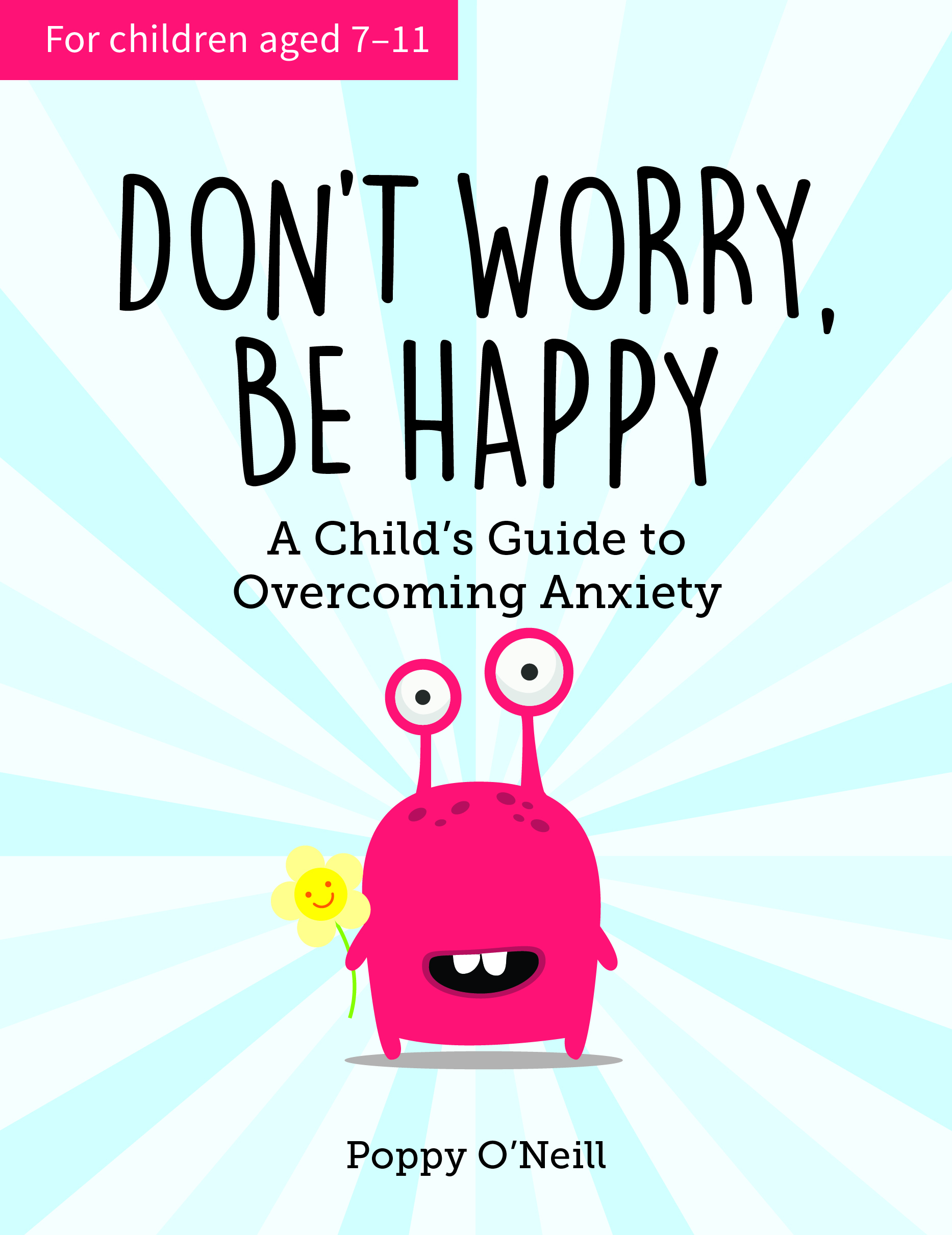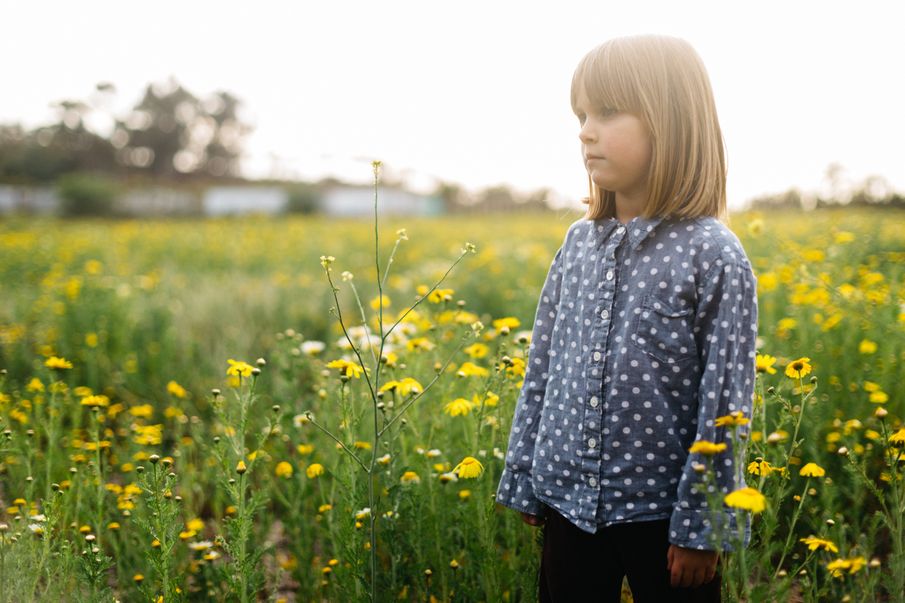Author Poppy O’Neill shares her tips and advice on how parents can help children with anxiety
Just like us, children have their own worries and anxieties. While different kinds of worries can affect kids at different ages, with many being a normal part of growing up, if their worries begin to affect their daily life, overall health or wellbeing, this can be a sign they may be experiencing anxiety and could need a little extra support.
Signs to look out for
Not all children have the words or the confidence to describe what they are feeling. They may be too shy to speak up, or anxious to talk about what they are feeling. There may be other ways your child is expressing themselves as well as other signs you can keep an eye out for, including:
- Becoming unusually irritable, clingy, or tearful
- Experiencing difficulty sleeping, waking at night, or nightmares
- A lack of confidence
- Decreasing levels of concentration
- An unexplainable loss of appetite
How you can help
While counselling can help children learn to recognise and manage their anxiety, there are also plenty of ways parents can help children learn to deal with anxiety.
Poppy O’Neill, author of Don’t Worry, Be Happy: A Child’s Guide to Overcoming Anxiety, shares some of her top tips and advice on how we can help boost children’s self-esteem and confidence:
Listen
The most important thing you can do is listen to them. Listen and ask general questions about school, friends and hobbies in an open way, and they’ll feel able to talk to you about their fears and worries. By creating a healthy, strong relationship with your child, you can help them to become more resilient.
If they seem reluctant to talk, take a step back and take your cues from them. They may want to just talk about their feelings generally, or may not be ready to talk at all. Make sure they know you are there if and when they are ready.
Be open
Let them know you are there for them, that you’ll take them seriously and help them solve any problems they come up against no matter how big or small. If there’s a stressful event coming up – such as a house move – and your child is feeling anxious about it, talk openly with them about what will happen.
If your family is going through an upsetting time like a bereavement or divorce, avoid giving your child information they don’t need. Being open doesn’t mean you have to give them all of the details. Keep things age appropriate and listen to your instincts. You know how much information and detail your child can handle.
Take them seriously
When your child talks about their worries, it’s important to take them seriously without amplifying their worries. Focus on solutions when there’s a problem to be solved, and involve your child in finding a solution. It can help to talk about the worst-case scenario (and whether they’ll be OK if it happens), the best-case scenario, and what is most likely to happen. Things may not seem as big or scary once they begin talking about them.
Be patient
If your child becomes panicked or anxious, remember this is their brain telling them they might be in danger – they aren't being difficult or manipulative. Try to talk to them using language they’ll understand, and encourage them to talk about their feelings and to ask questions – but don’t be afraid to admit you don’t know all the answers.
Find appropriate resources
Look for books or films that can help kids understand their feelings. Reading or watching these together can be reassuring, helping children to recognise that their feelings aren’t wrong or bad, while creating opportunities to discuss their own feelings.
Creating a sustainable, stress-reducing routine (and sticking to it) can also help children feel more secure. Exploring other relaxing, calming activities such as mindful colouring can also help anxious children to feel more calm, while creating a good opportunity for you to begin an open, honest discussion as some children may find it easier to talk about unsettling subjects when they are occupied with something else.
How to help children deal with anxiety attacks
If you are worried they may be on the verge of having a panic attack, try these simple ways to help them. If you are worried they may be experiencing an anxiety attack, try:
- Get down to their level and take some deep breaths together
- Let them know you understand that they are feeling anxious
- Offer to hold their hand if they want (but be prepared to back off if they are too overwhelmed)
- Wait until they are feeling calmer before trying to discuss solutions and asking what is wrong. Once they are calm, try talking through with them what is worrying them, and what they could do about this.
While it’s natural to want to shield your child from negative feelings and experiences, avoiding the things that are making your child anxious can only work in the short-term, potentially making the problem considerably worse in the long run. The more the situation is avoided, the stronger your child’s negative memories and associations with the situation may become.
Try gradually and gently giving your child opportunities to form positive memories associated with their fear or the thing that is causing them to worry. For example, if they are afraid of the dark, try taking them camping and toast marshmallows around the campfire after sunset. If they are anxious about speaking in front of their class, try putting on a play at home to give them practice. There are plenty of fun ways to gently guide your child towards feeling braver and facing their fears.
Encourage them to try new things, let them know it’s OK to have a go and not get things right the first time. Whatever happens, try to let go of the guilt; it can be tempting to blame ourselves for our children’s struggles or to try to make life as easy as we can for them, but we can’t fix everything. Give yourself a break; you’re doing a great job by giving your child the tools they need to grow into a resilient adult.

Aimed at children aged seven to 11, Don’t Worry, Be Happy: A Child’s Guide to Overcoming Anxiety combines proven cognitive-behavioural therapy (CBT) methods used by child psychologists in schools, with simple activities to help children overcome anxiety. A child’s early years can impact their emotional wellbeing, not just for now but for years to come.
Filled with fun, engaging activities and interspersed with useful tips, inspirational statements and practical information for parents, children are guided by Fiz – a friendly, supportive character.
Pick up your copy now, discover more about Poppy’s other books including You’re A Star: A Child’s Guide to Self-esteem or visit Counselling Directory to discover more about anxiety and childhood related issues.
Author Poppy O’Neill
RRP £10.99
Publisher Vie Books
Images Cover used with permission from Vie Books


Comments